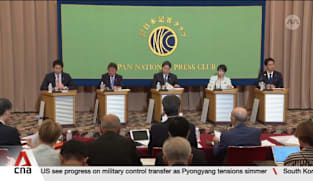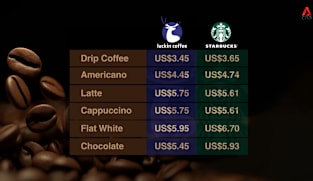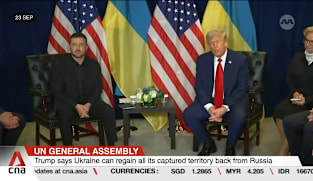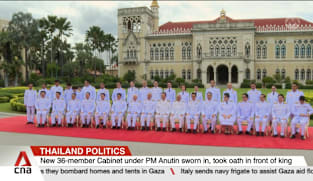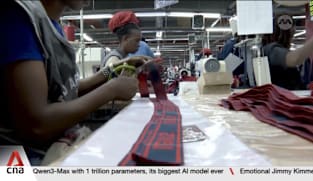Chee Hong Tat on COVID-19 pandemic-related procurement and expenditure
From January 2020 to July 2022, agencies adopted emergency procurement procedures to directly contract with suppliers, instead of going through open sourcing. Such an arrangement was necessary during the COVID-19 pandemic for the Government to respond swiftly to the crisis, said Senior Minister of State for Finance Chee Hong Tat. Replying to an MP's questions in Parliament on Wednesday (Mar 1), he gave a breakdown of the spending. Of the S$72.3 billion COVID-19 pandemic-related spending, about 90 per cent was not for the procurement of goods and services, but to provide support for families, workers and businesses. Of the S$8 billion of procurement, none was made without a quote and about S$1.1 billion was made with a single quote for the purchase of testing and swabbing services, as well as food and medical supplies. For those procurement contracts that were entered into with single quotes, no procurement was made to related parties, which refers to companies that are directly owned by the ministries or statutory boards. Mr Chee said Government agencies are expected to ensure proper and impartial evaluation is done and seek the necessary approvals for all procurement, including those done under emergency procurement procedures. He said all procurement transactions are further subjected to independent checks by agencies, internal audit teams and the Auditor-General's Office.
From January 2020 to July 2022, agencies adopted emergency procurement procedures to directly contract with suppliers, instead of going through open sourcing. Such an arrangement was necessary during the COVID-19 pandemic for the Government to respond swiftly to the crisis, said Senior Minister of State for Finance Chee Hong Tat. Replying to an MP's questions in Parliament on Wednesday (Mar 1), he gave a breakdown of the spending. Of the S$72.3 billion COVID-19 pandemic-related spending, about 90 per cent was not for the procurement of goods and services, but to provide support for families, workers and businesses. Of the S$8 billion of procurement, none was made without a quote and about S$1.1 billion was made with a single quote for the purchase of testing and swabbing services, as well as food and medical supplies. For those procurement contracts that were entered into with single quotes, no procurement was made to related parties, which refers to companies that are directly owned by the ministries or statutory boards. Mr Chee said Government agencies are expected to ensure proper and impartial evaluation is done and seek the necessary approvals for all procurement, including those done under emergency procurement procedures. He said all procurement transactions are further subjected to independent checks by agencies, internal audit teams and the Auditor-General's Office.













